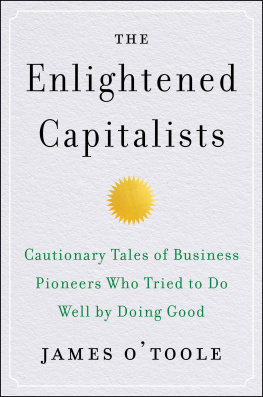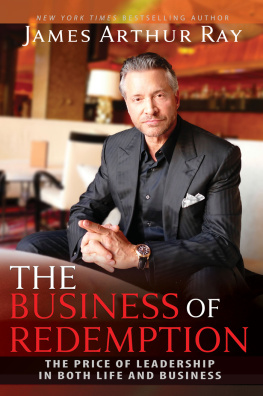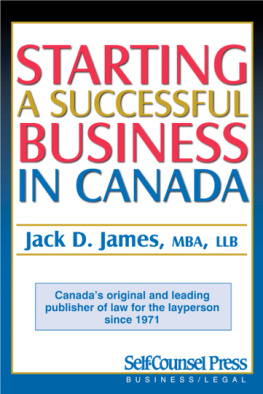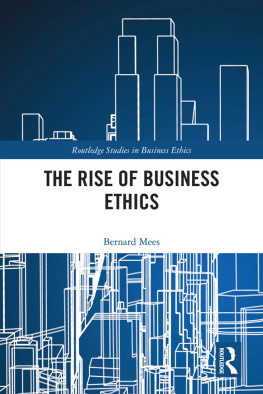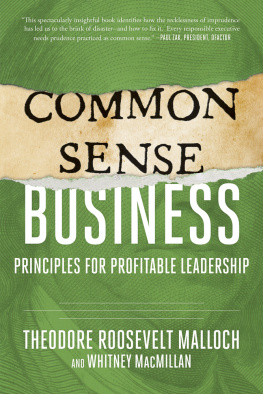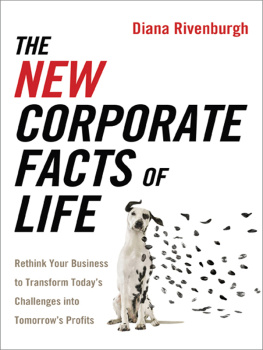... the good is oft interred with their bones.
Shakespeare, Julius Caesar
One was a professional manager who during the bleakest days of the Industrial Revolution created Britains most successful manufacturing business, the profits from which he used to provide decent working and living conditions for his workers and their families. For those efforts he was damned by his peers in industryand by Karl Marx. One was a self-made American millionaire who enabled a thousand others to become successful business executives, only to lose his own fortune during the Great Depression on an ill-conceived investment.
Another, the inventor of bar soap and modern product advertising, shared his wealth with thousands of employees and then lost his giant global enterprise to his creditors. Yet another was the playboy heir to a great corporation, a self-styled military general who created a model code of ethics for his company that, later, was ignored by executives who succeeded him.
Then there was the brilliant computer scientist who single-mindedly dedicated his company to addressing some of the worlds most intractable social programs, leading it to virtual bankruptcy in the process. And more recently there was the woman known as the mosquito, who pestered the corporate world to pay attention to environmental and consumer health issues before selling her company to a large corporation that showed little interest in such matters.
For nearly five decades, I have been fascinated by the stories of these and a small group of other (mostly now forgotten) business leaders who attempted to do good while at the same time doing well. I call them the enlightened capitalists. I have identified some fifty American and British business leaders who, over the last two centuries, have introduced unusually admirable organizational practices that greatly benefited both their shareowners and society, the careers of roughly half of whom are profiled in these pages. Each attempted to address the worlds most chronic and deeply entrenched problems: unemployment, poverty, unsafe and unhealthy working conditions, low-quality goods, and environmental degradation. By endeavoring to serve the needs of their employees, customers, and the broader community while at the same time successfully meeting the necessity of profit, those leaders hoped the organizations they created would serve as models their fellow capitalists would emulate.
Significantly, the enlightened capitalists sought to address social problems primarily through their business practices, rather than by acts of charity or philanthropy. Their ethical and responsible acts were not add-ons, afterthoughts, or atonement for bad behavior, but integral to the way they did business, incorporated in how they made products and delivered services. Their actions went far beyond the current executive affirmation that our company serves the needs of all our stakeholders. Unlike practitioners of the Davos Conscienceexecutives who migrate to the Swiss Alps to speak high-mindedly for a few days a year, then go back to business as usual for the next eleven and three-quarter monthsthe enlightened capitalists have steadfastly attempted to practice what they preach.
I admire the moral courage these men and women have displayed when doing what they felt was right, whatever the personal cost. Some of them have been, I admit, a bit quirky and obsessive, and a few utterly eccentric; nonetheless, to the extent that I have heroes, they are mine. They represent the promise of a virtuous corporate capitalism that the idealistic side of me finds socially and economically desirable.
Yet as I have studiedand sometimes personally observedthe efforts of these pioneering individuals, the realist in me has been struck by the fact that in their companies few of their virtuous practices have been long maintained. At some point shortly after the enlightened capitalists retired, died, were forced out of office, or sold their companies, their successors abandoned the very practices that made those companies both financially successful and publicly admired. Among the two dozen companies we examinethe earliest dating back to the early 1800sat only a handful did their founders virtuous practices survive through as many as two successions in leadership.
That pattern has continued to the current day. In the mid-1980s I had pegged two dozen American firms as being in the vanguard of what I then believed would become a general movement toward the adoption of enlightened practices. Before the century was out, only three of those companies had maintained those practices. The others abandoned them as the result, variously, of being acquired by other firms, going bankrupt, or changes in leadership.
Of course all companies change over time, forced to alter their products and strategies and adopt new technologies to meet competitive challenges. But the changes made at the enlightened capitalists companies were of a different sort: they involved the deliberate cessation of successful, socially desirable practicespractices, moreover, that were often the cornerstones of company success. Indeed, over the last two centuries, precious few companies have managed to sustain enlightened practicesparticularly corporations operating in economies characterized by the Anglo-American variety of laissez-faire shareholder capitalism. That is not to say all good companies inevitably come to bad ends; nonetheless, there has been an unmistakable historical pattern in that direction.
While the focus of this book is on the pastafter all, that is the only way the sustainability of business practices can be evaluatedit should not be seen as a work of history. Rather, it is about economic, political, and social issues being debated today. As I have studied enlightened leaders and the companies they led, I have found my idealistic and realistic sides debating the question many citizens are asking today: Are socially virtuous business practices compatible with shareholder capitalism? I offer my personal (uncertain) answer to that question at the end of the book. But what ultimately will matter is the collective judgment of corporate executives: Do they believe it is possibleor sensibleto try to do good as they seek to do well?
There is now a special urgency for them to engage with this issue. Over the last decade, a growing number of citizens in America and Britain have begun to challenge the legitimacy of the current economic ordera central pillar of which is the private corporation. The role corporations play in that order is a major (albeit not the only) determinant of the degree to which economic systems are viewed as fair and legitimate. When giant businesses are seen as behaving ethically, responsibly, and in the public interest, the citizenry tends to be satisfied that the system of corporate capitalism is fair. But when corporate behavior is perceived as rapacious, narrowly self-interested, and insensitive to the needs of society, those citizens may demand radical changes to the system.
The threat of radical change may be what led CEOs attending the 2018 Davos meeting into earnest discussion about social responsibility. There, the chairman of Wall Streets Vanguard investment fund, Bill McNabb, called on his fellow executives to end their obsession with short-term profits and instead focus on addressing such major social problems as climate change and employee well-being. This came fast on the heels of a similar plea by Larry Fink, CEO of $6 trillion investment fund BlackRock, who had recently declared that society is demanding that companies, both public and private, serve a social purpose... and benefit all their stakeholders. A few months earlier, the editors of the Financial Times

